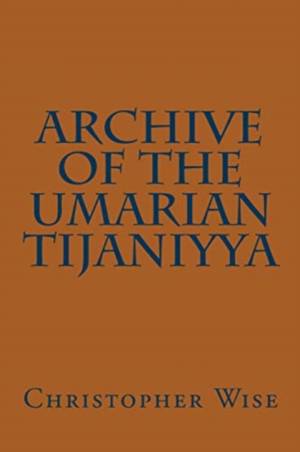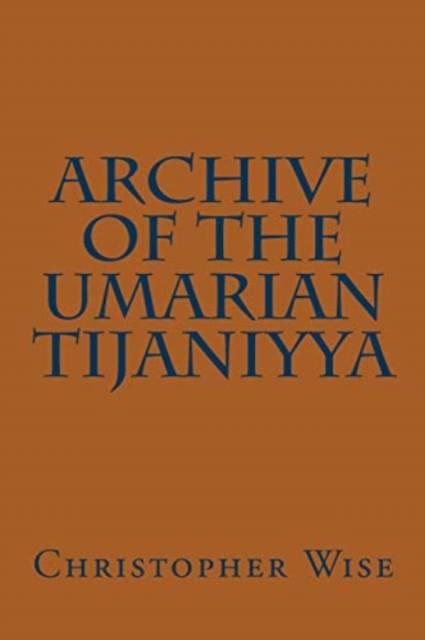
Bedankt voor het vertrouwen het afgelopen jaar! Om jou te bedanken bieden we GRATIS verzending (in België) aan op alles gedurende de hele maand januari.
- Afhalen na 1 uur in een winkel met voorraad
- In januari gratis thuislevering in België
- Ruim aanbod met 7 miljoen producten
Bedankt voor het vertrouwen het afgelopen jaar! Om jou te bedanken bieden we GRATIS verzending (in België) aan op alles gedurende de hele maand januari.
- Afhalen na 1 uur in een winkel met voorraad
- In januari gratis thuislevering in België
- Ruim aanbod met 7 miljoen producten
Zoeken
Omschrijving
In the mid-19th century, al-Hajj Umar Taal launched a jihad in West Africa that forever altered the course of the region's history. Taal was a Tukulóor Fulani who was born in Alwaar, Senegal in 1794 (or 1795). After taking the hajj to Mecca, he returned to West Africa and established Tijaniyya Sufism throughout the region. Taal's jihad was directed against non-Muslim "heathen," especially the Bambara. It was also undertaken in opposition to French colonialism. But, after destroying the Segu Empire of the Bambara, al-Hajj Umar became embroiled in a bloody sectarian and inter-ethnic conflict with the Massina Fulani of Hamdallahi, Mali. Twenty years in the making, Wise's Archive of the Umarian Tijaniyya is a collection of eyewitness accounts of Taal's life and jihad, translated into English for the first time. Original documents, written by Sahelian, Arab, and French authors, first appeared in Pulaar Ajami, Arabic, and French. Informants include Al Hajj Umar Taal, Muhammadu Aliu Tyam, Abdullai Ali, Aguibu Taal, Eugene Mage, Paul Soleillet, Henri Gaden, Thierno Mamadu Taal, Theirno Umar Taal, Al Hajj Seku Taal, and Muntaga Taal. Twenty years in the making, Wise's "archive" also includes a lengthy introduction by Wise that places Taal's jihad in historical context with special reference to the 2013 jihad of the Ansar Dine in Northern Mali. The book includes historical illustrations, maps, and color photographs.
Specificaties
Betrokkenen
- Auteur(s):
- Uitgeverij:
Inhoud
- Aantal bladzijden:
- 502
- Taal:
- Engels
Eigenschappen
- Productcode (EAN):
- 9780692848302
- Verschijningsdatum:
- 19/04/2017
- Uitvoering:
- Paperback
- Formaat:
- Trade paperback (VS)
- Afmetingen:
- 152 mm x 229 mm
- Gewicht:
- 925 g

Alleen bij Standaard Boekhandel
+ 181 punten op je klantenkaart van Standaard Boekhandel
Beoordelingen
We publiceren alleen reviews die voldoen aan de voorwaarden voor reviews. Bekijk onze voorwaarden voor reviews.









